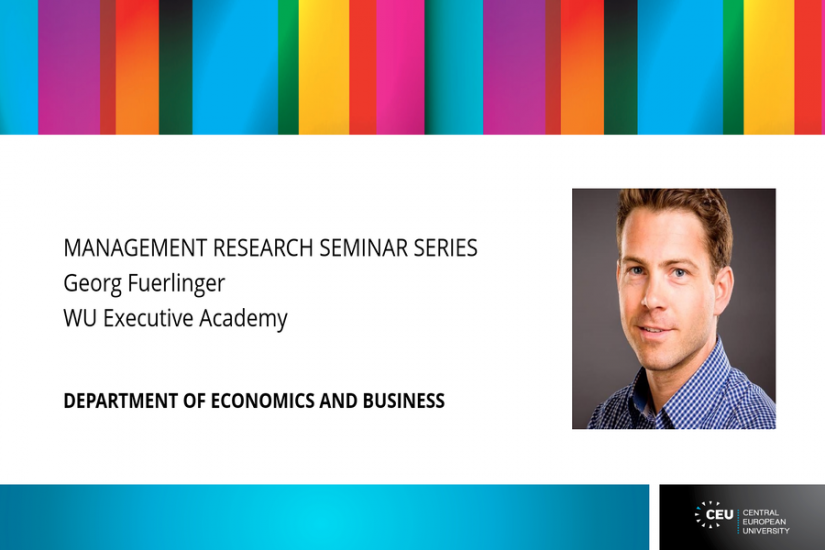
Speaker
Management Research Seminar Series, conducted by the Department of Economics and Business, aims to bring accomplished researchers in the Management field to share their current research projects to facilitate an academic discussion, enhance knowledge, and discover potential connections. The series is designed for the academic audience, i.e., the Faculty and MA, PhD students; however, anyone interested in the series is welcome to attend.
On November 30, Dr. Georg Fuerlinger from WU Executive Academy will join the Management Research Seminar Series. The event will be in-person and on Zoom. For details, please email senyuza@ceu.edu or Yurteri_Sidar@phd.ceu.edu.
Abstract: Technology and knowledge transfer from the university to the market, particularly through university startups and spin-offs, play a crucial role in innovation driven economies. The concepts of entrepreneurship ecosystems and the entrepreneurial university highlight the importance of social networks transcending the university to foster academic entrepreneurship. The objective of this empirical study is to analyze the role of human and social capital in early-stage university startup development and their impact on startup growth performance. Furthermore, this thesis explores the differences in the human, social and financial capital endowment of university startups in the USA and Europe, considering cultural and institutional factors in the surrounding ecosystems. In a first step, exploratory interviews at the Stanford University`s startup accelerator program StartX in Silicon Valley and the New York Institute of Technology were conducted. Based on those insights, combined with an extensive literature review, the conceptual model, research hypothesis and questionnaire were developed. A large-scale, web-based survey was compiled, receiving 409 responses from university startups in Austria, Germany, Sweden, Switzerland and the USA. This unique dataset forms the basis for the quantitative analyses, through descriptive and multivariate statistical methods, to verify the postulated hypotheses. In terms of human capital, the entrepreneur`s growth aspiration and prior startup experience, as well as a committed founding team, have a significant positive impact on raising financial capital and on startup growth performance overall. Empirical evidence underlies the importance of actors outside the research network to support university startup development. It also shows how intermediary organizations, like incubators and accelerators, can contribute to the development of social capital of startups. The results also shed light on the differences in human, social, and financial capital endowment of university startups in the USA and Europe and how these factors are interrelated. In conclusion, implications for academic entrepreneurs, startup support organizations and policy makers are discussed, and the thesis concludes with an agenda for future research.